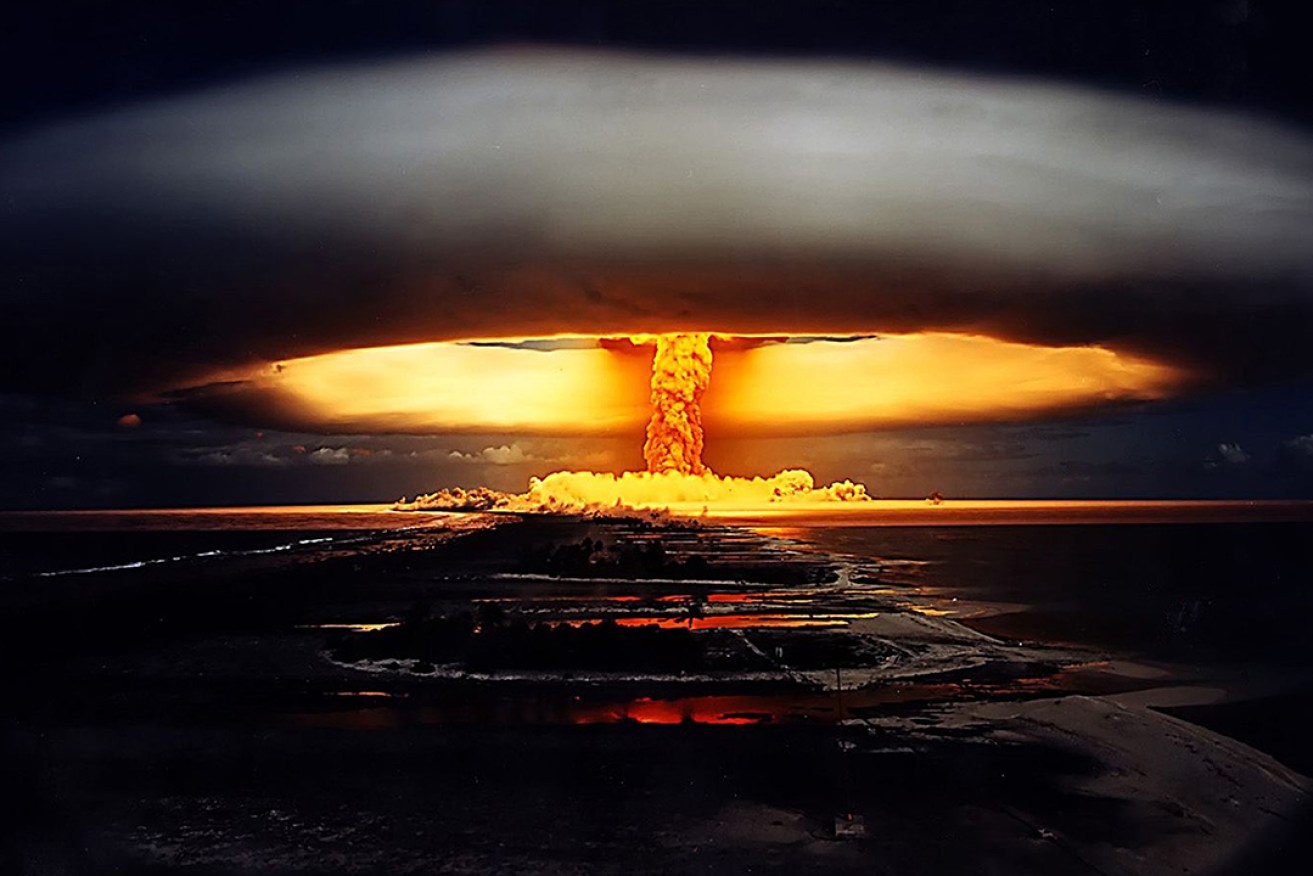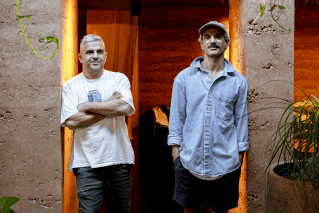Why even a ‘small nuclear war’ would leave most of world on brink of starvation
If you think a war between Russia and Ukraine on the other side of the planet does not really concern Australia, a group of Queensland researchers have got news for you, writes Katrina Beikoff.


A French nuclear test at Mururoa Atoll, French Polynesia in 1970 - one of 41 tests conducted in the region by the French Government (Image: CTBTO).
In what may have until recently sat firmly in the grim genre of post-nuclear apocalypse fiction, Queensland and international scientists have released new research showing that Australia would be one of the best places to survive the fallout of a “small scale” nuclear war.
The scientists modelled the impacts of nuclear war, finding the disruption to climate from the after-effects of a nuclear blast could cause global food shortages and mass famine-related deaths.
But, in a meagre spot of good news in the nuclear nightmare scenario, Australia was identified as one place in the world with at least a slim chance of supporting survivors.
Report co-author from Queensland University of Technology’s school of mathematical sciences, Dr Ryan Heneghan, said the modelling was conducted before Russia invaded Ukraine in February.
Since March, Russian forces have occupied Europe’s largest nuclear plant in south-eastern Ukraine, placing the world on nuclear disaster alert.
Heneghan said the study was the first to pull together the impacts of regional or “small-scale” nuclear war, rather than only the prospect of full-scale nuclear Armageddon.
“There’s been a history of these kinds of studies since the 1980s, and I think they are becoming a bit more relevant than they have been for the past 20 years, unfortunately,” Heneghan said.
“What distinguishes this study from what has been done in the past is first of all, this is the first study that looks at climate impacts and food impacts together not just for global war…but also looking at regional war, or smaller scale nuclear war,” he said.
“If it was global war, such as a worst-case scenario between Russia and the US using 90 per cent of the world’s nuclear weapons, if that happens, it’s pretty much game over.”
The study, published today in the journal Nature Food, tested “six atmospheric soot-injection scenarios”, or six different sized nuclear wars based on the reported stocks of bombs held by nuclear-armed nations.
The scientists from the US, Europe and Queensland found that if a war broke out between India and Pakistan, considered a “small” or “regional” nuclear war, the explosions would produce more than five teragrams (5 trillion grams) of soot to fly into the atmosphere.
The modelling showed such eruptions would block sunlight from reaching the surface of the earth and limit food production, causing mass food shortages globally and killing around two billion people.
It found that if nuclear war broke out between the US and Russia, the global annihilation would be immediate and devastating.
The modelling showed that war between the two superpowers would shoot more than 150 teragrams of fire and soot into the upper atmosphere, would send the world into a nuclear winter, and result in the famine-related deaths of 5 billion people.
Using model simulations of major crops and wild-caught marine fish together with estimated changes in other food and livestock production, they found that any sized nuclear war would impact countries around the world causing widespread famine.
Australia was a rare exception globally that would be able to produce enough food to support more than the country’s own population, the study found.
Australia’s distance from a potential nuclear conflict combined with the nation’s capacity to produce more food than needed, particularly wheat, would buffer us from some of the after-effects.
“A big take home of the paper is that unlike a conventional war, a regional nuclear war would have impact far beyond the warring countries,” Heneghan said.
“Because nuclear weapons are so powerful, they would affect the climate for about a decade with relatively few weapons used, so it would be a catastrophe around the world, not just in those countries.”
The authors said their findings demonstrated the far-reaching implications of nuclear conflict as well as the importance of global cooperation in preventing the use of nuclear weapons.












